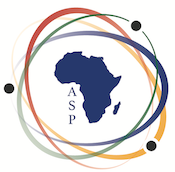Speaker
Description
Complexity Science—or Complex Systems Science—offers a powerful, transdisciplinary framework for understanding how diverse systems evolve, adapt, and self-organize across scales. Rooted in the principles of fundamental physics—such as nonlinearity, emergence, feedback, and collective behavior—Complexity Science extends into diverse domains: from particle interactions to ecological networks, from neural circuits to innovation systems and cities.
Globally, this field is gaining momentum as a way to address dynamic and interconnected challenges. In Africa, however, Complexity Science remains largely underdeveloped, with limited institutional presence, few formalized research programs, and emerging but uncoordinated activity. This absence, while a limitation, presents a unique opportunity: to craft a continental agenda that positions Complexity Science as both an intellectual frontier and a strategic tool for research and innovation.
This talk will motivate why Complexity Science is not only relevant but essential for Africa’s scientific future. As the continent confronts complex issues—ranging from climate change and pandemics to infrastructure, energy, and food systems—there is an urgent need for frameworks that transcend disciplinary silos and engage with systems as wholes. Complexity Science provides both the language and the tools for this.
I will trace conceptual and methodological links between fundamental physics and complex systems theory, and explore how this perspective can guide interdisciplinary problem-solving in African contexts. I will also share emerging initiatives, including capacity-building efforts such as summer schools, undergraduate research programs, and the development of institutional platforms like the Mandela Institute for Theoretical and Computational Sciences (MITheCS).
Ultimately, this presentation aims to inspire African researchers, educators, and policy-makers to engage with Complexity Science as a means to advance scientific excellence and sustainable development. It is both a call to action and an invitation to collaboration—to build a thriving Complexity Science community that reflects African realities, priorities, and aspirations.
| Abstract Category | Complexe System |
|---|
